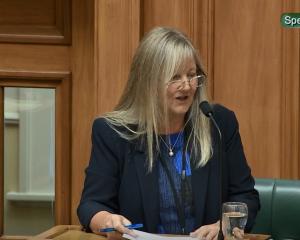Moves to track offshore buyers are rushed and confusing and could increase compliance costs to taxpayers, the Government has been warned.
In its submission on the Taxation (Land Information and Offshore Persons Information) Bill, EY (formerly Ernst & Young) said the proposed legislation was being rushed through to come into effect from October 1 this year.
Prime Minister John Key announced changes ahead of the Budget in May, which he said would make sure that gains on investment properties were taxed fairly, and provide more information on overseas buyers.
The changes include requiring non-residents and New Zealanders buying and selling any property other than their main home to provide a New Zealand Inland Revenue (IRD) number.
Non-residents will also need to have a New Zealand bank account to get a New Zealand IRD number.
The Labour Party, which released leaked real estate data which it says strongly indicates a high number of off-shore Chinese buyers in the overheated Auckland market, wants a formal register of foreign buyers.
EY representatives today appeared before the finance and expenditure committee to support its written submission, which argued the law changes "require considerable further thought and reflection to ensure that the provisions can be clearly understood by taxpayers, will apply as intended and will achieve the desired policy objectives, rather than merely complicating compliance at some cost to taxpayers.
"As presently drafted, the Bill's provisions contain a confusing mix of tax, immigration and overseas investment concepts, which are likely to give rise to a number of technical and practical issues and which, in turn, may render the outcomes less effective from the CIR's [the Commissioner of Inland Revenue] perspective," EY's written submission stated.
David Snell, EY executive director, told the committee there was no reason why the Bill could be "bolder".
"Why have the offshore person definition at all? Instead, have all parties to purchases and sales of properties providing their IRD numbers. We think it will be much easier for people to provide a known number rather than make potentially complex judgements in a specialist area around tax residents and around the compliance or not of an offshore person.
"We also thought, if you are currently subject to tax overseas, then just provide your...equivalent of an IRD number as a matter of course. That would give a stronger information base and a clearer signal."
Mr Snell also queried the main home exemption - saying it would not be a burden for people to provide an IRD number, nor a significant compliance cost. That position was supported by Labour MPs Clayton Cosgrove and Stuart Nash.
Both EY and law firm Chapman Tripp, which also made a submission and appeared before select committee today, said the proposals would require some non-residents to open New Zealand bank accounts only for the purpose of obtaining an IRD number.
This would be the case even for people who did not purchase property or clearly had no intention to do so.
"If it is the case that banks will be unable to obtain IRD numbers from 'Offshore Persons' when they first open bank accounts in New Zealand, then the banks will be obliged to withhold at 33 per cent on any interest payments to the 'Offshore Person' until the 'Offshore Person' has completed their IRD application and notified the bank of their IRD number," Chapman Tripp said in its submission.
Chapman Tripp also warned that the legislation would create a difficult compliance obligation for body corporates, and that this creates a risk that it could be circumvented.
- By Nicholas Jones of the New Zealand Herald












